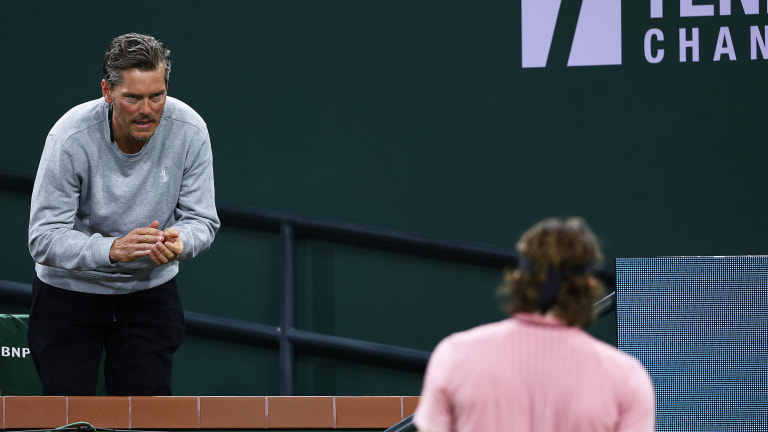Coach's Corner
ATP Tour announces "off-court coaching" trial during second half of season, including at US Open
By Jun 21, 2022Coach's Corner
“Right now, I’m hurting”: Juan Carlos Ferrero opens up on Alcaraz breakup
By Dec 26, 2025Coach's Corner
Coaching carousel continues: Grigor Dimitrov, Daniel Vallverdu split for second time
By Dec 19, 2025Coach's Corner
Carlos Alcaraz announces shock split from longtime coach Juan Carlos Ferrero
By Dec 17, 2025Coach's Corner
Daniil Medvedev announces split from coach Gilles Cervara after dramatic US Open exit
By Aug 31, 2025Coach's Corner
Elena Rybakina on return of coach Stefano Vukov: “It’s just nice to see him in the box”
By Aug 30, 2025Coach's Corner
SPOTTED: Coco Gauff training with biomechanic coach Gavin MacMillan at US Open
By Aug 20, 2025Coach's Corner
Stefano Vukov, coach of Elena Rybakina, cleared by WTA Tour to return from suspension
By Aug 08, 2025Coach's Corner
SPOTTED: Diana Shnaider trains with Sascha Bajin, Emma Raducanu with Francisco Roig, in Cincinnati
By Aug 05, 2025Coach's Corner
SPOTTED: Naomi Osaka hits the court with coach Tomasz Wiktorowski in Montreal
By Jul 29, 2025ATP Tour announces "off-court coaching" trial during second half of season, including at US Open
Coaches must remain in their designated seats, and verbal coaching is allowed—when the player is on the same side of the court as his coach.
Published Jun 21, 2022
Advertising
Advertising

Stefanos Tsitsipas, a proponent of coaching in the pro game, with coach Thomas Enqvist during this year's BNP Paribas Open at Indian Wells.
© Getty Images